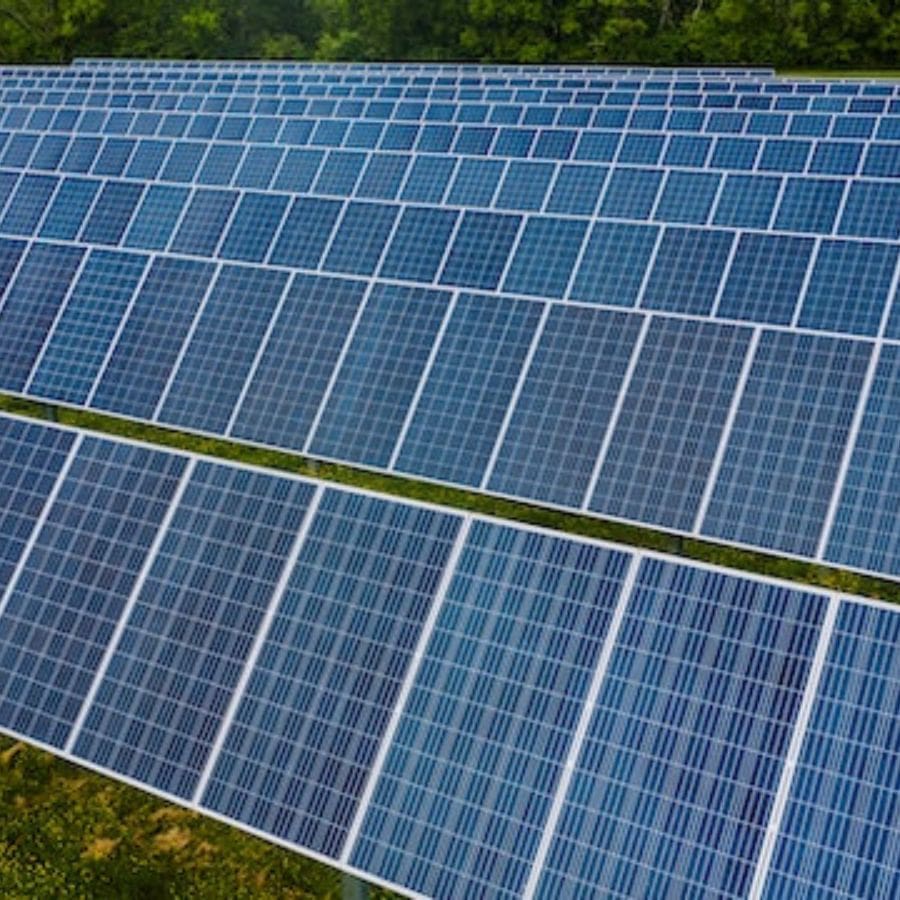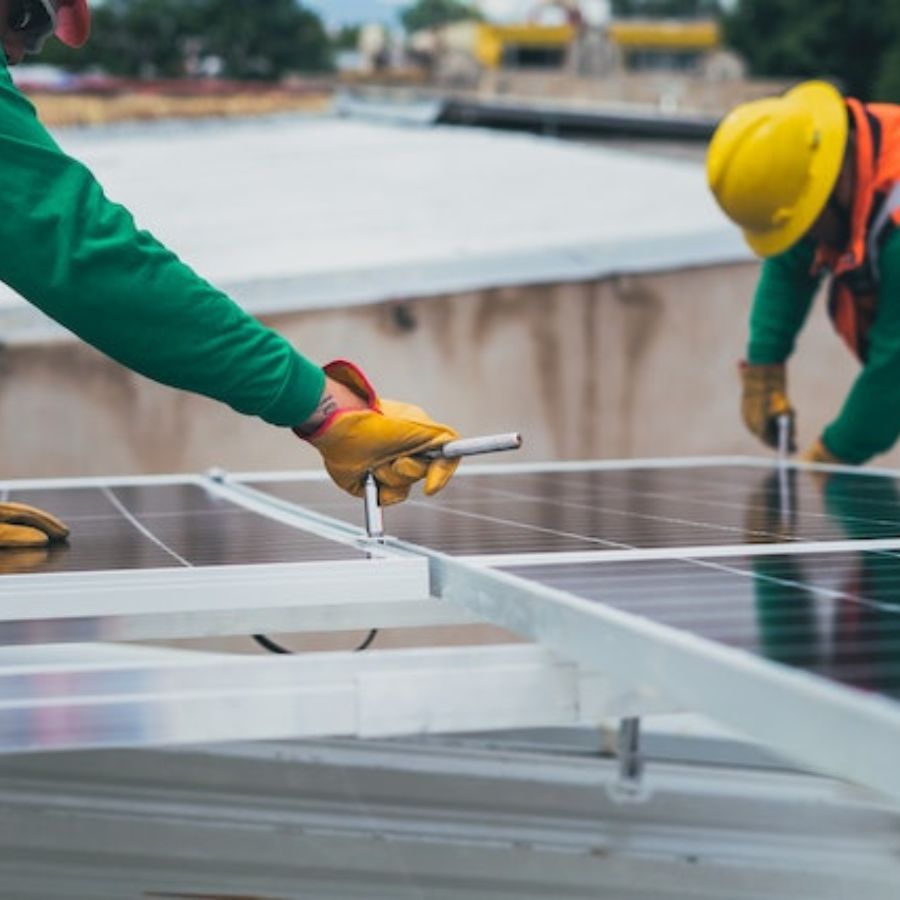Solar panels have become increasingly popular in recent years because they provide clean, renewable energy that can reduce a homeowner’s reliance on the electrical grid. However, in Ireland, where the weather can be cloudy and rainy for much of the year, many people may wonder how effective solar panels are in producing energy daily.
In this article, we will delve into the average solar panel output per day and provide the information you need to make an informed decision about installing a solar panel system.
What Are Solar Panels?
Before we dive into solar panel output, it is crucial to understand what solar panels are and how they work. Solar panels, also known as photovoltaic (PV) panels, are made up of solar cells that convert sunlight into electricity. These cells are made from silicon, a non-toxic and abundant material found in sand.
When sunlight hits a solar panel, the solar cells absorb the energy from the photons, releasing electrons. These electrons flow through a circuit, producing an electric current that can be used to power homes and businesses.
What Is the Average Solar Panel Output per Day

The average solar panel output per day in Ireland can vary depending on several factors, such as the time of year, the weather, and the orientation and angle of the solar panels. According to the Sustainable Energy Authority of Ireland(SEAI), Ireland’s average daily solar energy output is around 3.5 kWh per square meter of solar panel. However, this figure can vary widely depending on the factors listed above.
How Many Kwh Do Solar Panels Produce?
A solar panel’s energy is measured in kilowatt-hours (kWh). One kWh is equal to the energy used by a 1,000-watt appliance for one hour. The amount of energy a solar panel can produce depends on some factors, including the size and efficiency of the panel, the amount of sunlight it receives, and the temperature and humidity of the environment.
A typical solar panel in Ireland can produce anywhere from 200 to 400 watts of power per hour, depending on the abovementioned factors. A 1 kW solar panel makes between 4 and 8 kWh per day.
How Much Energy Does a Solar PV Panel Generate?
A solar PV (photovoltaic) panel is a type of solar panel that converts sunlight into electrical energy using a semiconductor material. The amount of energy a solar PV panel can generate depends on several factors, including the size and efficiency of the panel, the amount of sunlight it receives, and the temperature and humidity of the environment.
On average, a 1 kW solar PV panel system in Ireland can generate around 3.5 kWh daily. However, this figure can vary widely depending on the factors mentioned above.
What Factors Affect the Amount of Power Generated by Your Solar Energy System?
Several factors can affect the amount of power generated by a solar energy system, including:
The Orientation and Angle of the Solar Panels
Solar panels should be installed facing south in Ireland. It helps them to receive the maximum amount of sunlight. The angle of the panels should also be optimized for the location’s latitude.
The Weather
Cloudy or overcast days will result in less energy production than sunny days.
Temperature and Humidity
Higher temperatures can reduce the efficiency of solar panels, while high humidity can cause condensation to form on the surface of the panels, reducing their efficiency.
The Size and Efficiency of the Solar Panels
Larger, more efficient panels will produce more energy than smaller, less efficient panels.
How Many Solar Panels Do I Need to Power My House?
The number of solar panels needed to power a house depends on the amount of energy the household uses and the size and efficiency of the solar panels. A typical home in Ireland uses around 4,000 kWh of electricity per year, which equates to approximately 11 kWh per day.
Assuming a solar panel system has an average output of 3.5 kWh per day, a household would need around three 1 kW solar panel systems to generate enough energy to meet their needs. However, this figure can vary widely depending on the geographic location and weather conditions.
Factors That Can Affect a Solar Panel’s Energy Production
Several factors can impact the amount of energy that a solar panel produces. The following are the most critical ones:
Amount of Sunlight Received
It is the most significant factor that can affect the energy a solar panel produces. The more sunlight a panel receives, the more power it generates. However, the amount of sun a panel receives can be affected by factors such as the time of day, season, weather conditions, and shading from nearby trees or buildings.
Temperature
The temperature can also have an impact on the performance of a solar panel. As the temperature increases, the efficiency of the solar panel decreases, leading to a reduction in energy production.
Angle and Orientation of the Solar Panel
The angle and orientation of the solar panel can have a significant impact on its energy production. For instance, if the panel is angled towards the sun, it will receive more sunlight and produce more energy.
Quality of Solar Panels
The quality of the solar panel can also impact its energy production. High-quality solar panels are more efficient and produce more energy than low-quality panels.
How Much Electricity Does a 1 KW Solar Panel System Produce?
A 1 kW solar panel system can generate approximately 4-5 kWh daily electricity. However, the amount of energy produced can vary depending on several factors, such as the panel’s location, angle, temperature, and shading.
What Affects How Much Electricity a Solar Panel Can Generate?
Several factors can impact how much electricity a solar panel can generate. Some of these factors include:
Amount of Sunlight
The amount of sunlight a solar panel receives is the primary factor affecting its energy production.
Panel Efficiency
The efficiency of a solar panel can also impact the amount of energy it produces. High-quality solar panels are more efficient and have more power than low-quality ones.
Temperature
The temperature can also affect the performance of a solar panel. As the temperature increases, the panel’s efficiency decreases, leading to a reduction in energy production.
Angle and Orientation
The angle and orientation of the solar panel can have a significant impact on its energy production. For example, if the panel is angled towards the sun, it will receive more sunlight and produce more energy.
Factors That Affect the Size of Your Solar PV System
Electricity Consumption
The amount of electricity your household consumes is a significant factor in determining the size of your solar PV system. The more energy you use, the larger the solar PV system you’ll require to meet your needs.
Location
Your location is another significant factor that affects the size of your solar PV system. It is due to the amount of solar radiation received in different parts of Ireland. Areas with high amounts of sunlight, such as the southeast, may require a minor solar PV system to meet energy requirements, whereas areas with less sun may require larger solar PV systems.
Roof Orientation and Pitch
The orientation and pitch of your roof can also affect the size of your solar PV system. South-facing tops are ideal for solar panels, as they receive the most sunlight. Roofs with a pitch of around 30 degrees are also excellent, as they optimize energy output.
Shading
Shading from trees, buildings, or other obstructions can significantly impact the performance of your solar PV system. Therefore, a professional installer will carefully consider shading when designing your system to maximize efficiency.
Why Do Solar Panels Only Cover 50% Of Your Electricity Needs?
Using solar power is a fantastic way to generate electricity, but it may only be able to provide some of your household’s energy needs. That is because several factors can limit their coverage.
Firstly, the amount of solar panels you can install on your roof depends on the available space and orientation to the sun. If you have limited roof space or your roof is not well-oriented towards the sun, you may need more panels to meet all your electricity needs.
Secondly, the solar system coverage is limited by your energy consumption. If you consume a lot of electricity, you must install solar panels to generate sufficient energy to meet your needs.
Thirdly, the amount of sunlight your solar panels receive affects their efficiency. If you live in an area with limited sunlight or your panels are shaded, they may need to generate more energy to cover all your electricity needs.
Lastly, the efficiency of solar panels themselves can vary. Some panels may be more efficient than others in converting sunlight into electricity. Therefore, the quality of the solar panels you install can also impact the amount of electricity you can generate.
Final Thoughts
Solar panels are a fantastic way to generate electricity for your household. By understanding the average solar panel power output per day and the factors that affect the amount of power generated by your solar energy system, you can make informed decisions about installing a solar PV system.
Factors such as roof orientation and pitch, shading, and the size of the solar PV system all play a role in determining how much energy your solar panels can generate. Working with a professional installer ensures that your solar PV system is designed to meet your energy needs and optimize efficiency.
While solar panels may not be able to meet all of your household’s energy needs, they are an excellent way to supplement your energy consumption and reduce your carbon footprint. Investing in a solar PV system can reduce your reliance on fossil fuels and take a step towards a more sustainable future.

